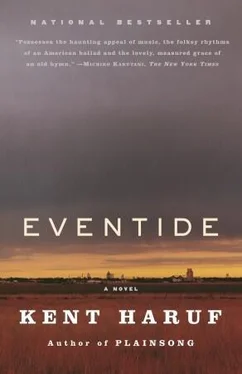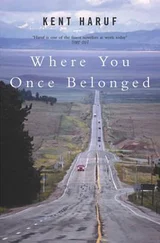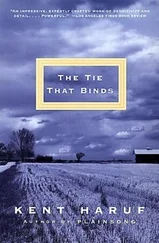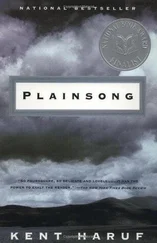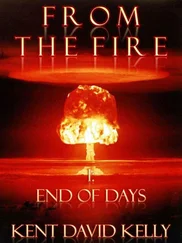They found a discarded kitchen chair and a wooden table with a splintered leg, then two old china dinner plates together with three silver forks and a serving spoon and a single steel-bladed knife. The next day they discovered a cast-off framed picture of the baby Jesus, with fat legs and fat feet, and a halo shimmering above his brown curls, altogether naked save for a white cloth draped about his hips. There was a sweet look of entreaty on his face, and they carried the picture back and hung it on a nail.
And five blocks away they discovered a rose-patterned carpet beside a trash can in the alley behind a brick house. The carpet was stained the color of coffee at one of its corners. They hauled it out into the alley, studied it, walked on it, then rolled it up and began lugging it home. But it turned out to be too heavy and down the alley they dropped it. I’ll go get something, he said. He went back to his grandfather’s house and returned with the wagon he had received as a present at Christmas when he was a first-grader and they balanced the carpet on the wagon and started back, both ends dragging in the weeds and gravel.
In the next block an old lady was standing at the back of her house in a black scarf and a man’s long black overcoat. When they approached she stepped out into the alley. What are you kids doing? What’s that you have?
It’s just a rug.
You stole it, didn’t you.
They looked at her. One of her eyes was blue and clouded and her nose dripped.
Let’s go, DJ said. They started on around her.
Stop where you are, she said. She began to trot after them, wobbling in the red gravel. Thieves! she cried. Stop now!
Now they ran, the wagon bouncing behind them, the carpet leaping and scraping in the gravel until it finally tipped off. Panting, they looked back. She stood in the middle of the alley far behind. She was calling to them but they couldn’t tell what it was. Just then she removed the black scarf from her head and waved it at them like a flag or warning, and without the scarf they could see her head was as bald as a brass ball.
You better watch out for her, Dena said.
She’ll find you, he said. She’ll come to your house.
They laughed, then lifted the carpet onto the wagon and carried on at a calm pace. At the shed they spread the carpet over the dirt floor, the stained end turned under, and swept it clean. Then they set the table on the carpet and placed the chair beside the table in the exact center of the room where the afternoon sun shone in through the window and the dust motes danced in the air like tiny creatures in dim water.
ON THE DAYS THAT FOLLOWED THEY WENT OUT AGAIN. One Saturday morning they found a second chair. Another day they turned up five red candles in a cardboard box and a glass candle holder that was only chipped at one corner. Back in the shed they lit one of the candles and sat down and looked at each other. It was late afternoon, almost evening, and suddenly they heard a car coming up the alley, the tires crunching in the gravel. They sat without breathing, each staring into the eyes of the other, and then the car went by without stopping and they began to talk softly in the flickering candlelight while, outside, the air grew dark around them.
I’ve got to go. Grandpa will be wanting supper.
You don’t have to go yet, she said.
I’ll have to go pretty soon.
THEY WERE LATE GETTING IT DONE. IT WAS ALREADY the middle of fall. They had been delayed by helping Victoria Roubideaux get settled in Fort Collins, and afterward by the unaccustomed listlessness that came with her absence, then they had busied themselves selling the yearling steers at the sale barn. So it was the middle of fall, already October, before they got around to moving the range bulls out of the pasture where the cows were.
That would have had something to do with it. Except that afterward, lying in his white bed in the Holt County Memorial Hospital staring out the window at the leafless trees, Raymond couldn’t say for certain if even this much were true — this despite the fact that he and his brother had dealt with cattle all their lives.
There were six of them in the corral, all black Angus bulls. Black cattle were preferred now. Forty years ago it had been whiteface Herefords. Now it was black cattle because they graded out higher at the slaughterhouses. Convention and caprice were about all it was.
They had moved the bulls into the plank corral next to the barn on the morning of this cold crisp day. The sky was overcast and high, not like it wanted to rain or snow, just high and completely covered and cold.
They had been checking each of the bulls, deciding if they wanted to get rid of any, and there was the one bull that was acting up, turning snorty like he was on the fight. He had always been all right before, a little high as black Angus bulls can be, but nothing out of the ordinary. He was five now; they’d bought him three years ago at the sale barn, paying twenty-five hundred dollars for him. They had checked the records beforehand, reading who his sire was, how much milk his dam gave, what his birth, weaning, and yearling weights were, what his fertility check showed. And they’d looked him over thoroughly in the numbered pen before the auction ever started, and they both had approved of his confirmation. He was already thick and heavy as a two-year-old, with thick muscling and a thick neck and a great wide hornless blunt head, and clear black eyes that looked at them from under black eyelashes that were almost like a girl’s, but with something else there too in his eyes as if he knew too well what he was capable of. He was upstanding, long in the body, with a good straight back, and his legs were set under him. He looked as if he could get around and cover the country. His sheath was satisfactory too, high enough that it wouldn’t snag on sagebrush or soapweed and get so lacerated and cut up that the scar tissue would prevent him from being able to cover the cows he was set to.
So they had bid on him when he’d come into the ring and afterward Raymond had written out the check to the woman in the office, then they’d hauled him home in the stock trailer. And in due time his calves had been good ones, all healthy and vigorous, fast gainers, like he was. Yet from the beginning he’d tended to be a little snorty.
Now he was the last of the six bulls they were looking at on this cold and overcast morning in October. The other bulls were already sorted into the next corral. The McPheron brothers were inside the corral with him, studying him, walking around him, the corral dirt under their feet soft and loose, dusty with the wisps of dried manure. They were dressed for the weather and looked almost like twins in their canvas chore jackets and their jeans and boots and leather gloves, their old white dirty hats pulled low over their eyes on their round heads. Their faces were chafed red, their eyes bleary with the dust, and their noses had begun to run a little in the cold.
Well, Raymond said, he looks all right.
He’ll do for another year, Harold said. He’s taken a little gaunt in the flank there. But he’s all right.
While they were talking about him the bull eyed them steadily. He turned to face them head-on as they walked around him.
He don’t look like he wants to quit.
Not today, Raymond said. He looks like he could go on for another five years. He’ll probably outlast the both of us.
All right then, Harold said.
He walked past the bull over to the heavy pipe-iron gate to throw it open so the bull could pass in with the others. Nervous from being kept back by himself, the bull moved up snorting and pawing to go through, but the gate was open only a little when he rushed the narrow opening, and all his weight was carried forward, slamming into the end-post of the gate as he hit it with his shoulder, and he was knocked backward, his feet slid in the dirt, and he went down as the gate clanged shut. He rose up massively and lunged forward, bellowing and snorting, his great head swinging back and forth, his eyes fixing on Harold. He dropped his head and smashed Harold in the chest, knocking him off his feet against the closed gate. You son of a bitch! Harold hollered. He slapped at him, tried to kick at him. But the bull smashed him again, lifting him, burying his head in Harold’s chest and stomach, splaying him out flat against the iron gate. Harold tried to holler but nothing came out. The bull stepped back and Harold slid down in the dirt, and then the bull began to ram at him with his head.
Читать дальше
